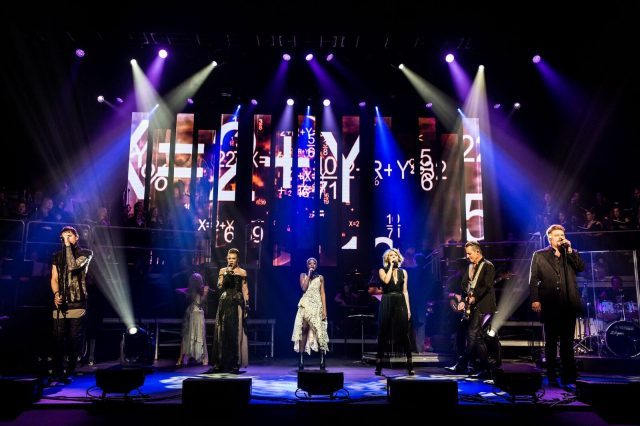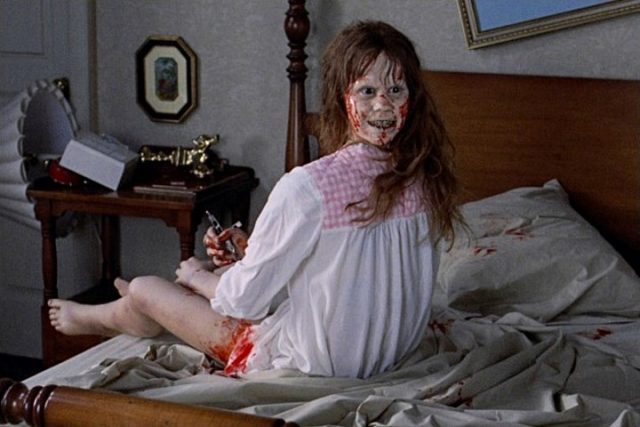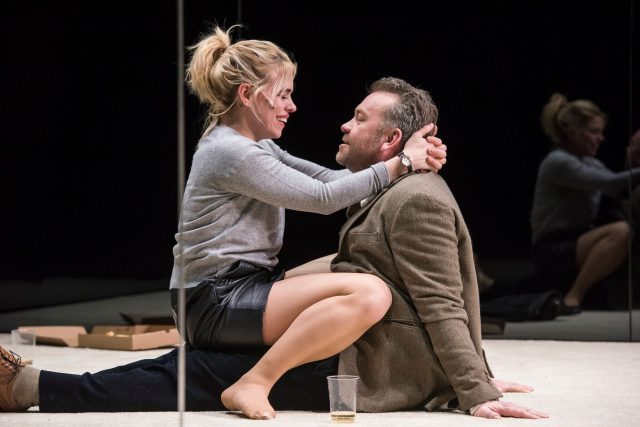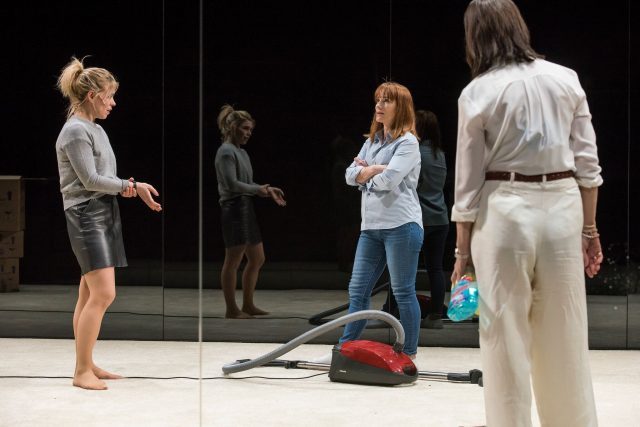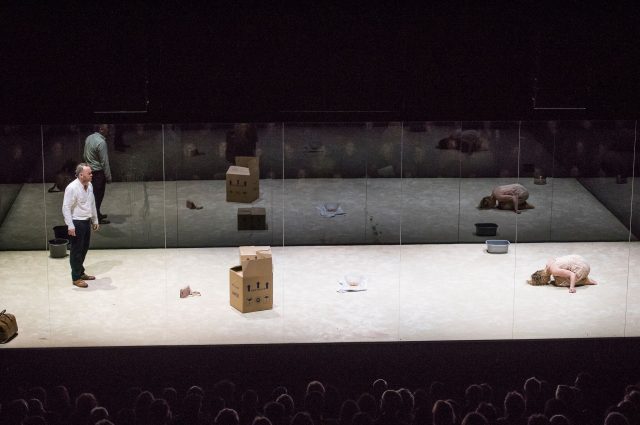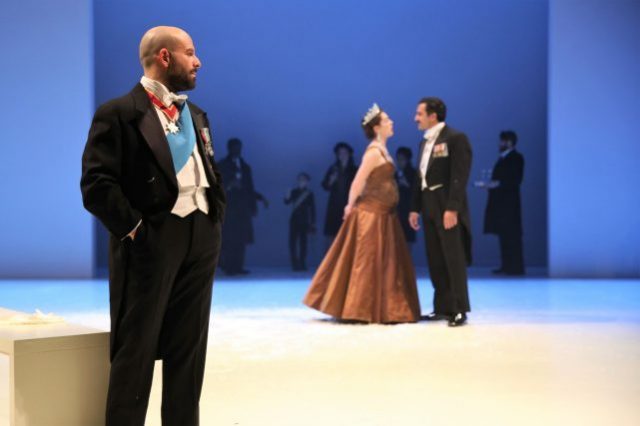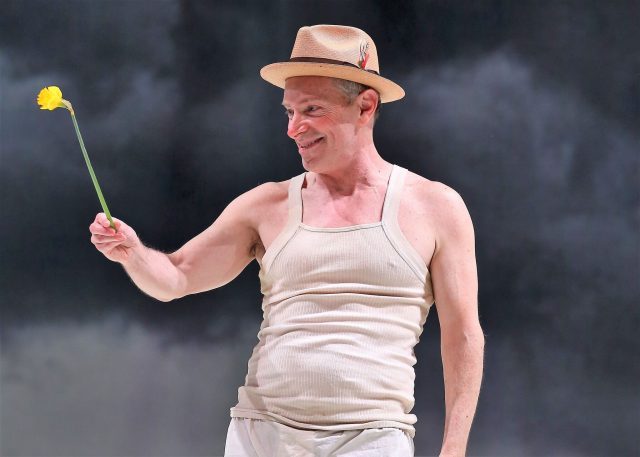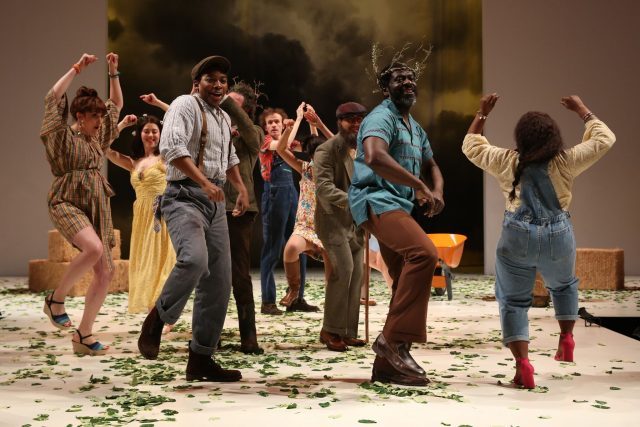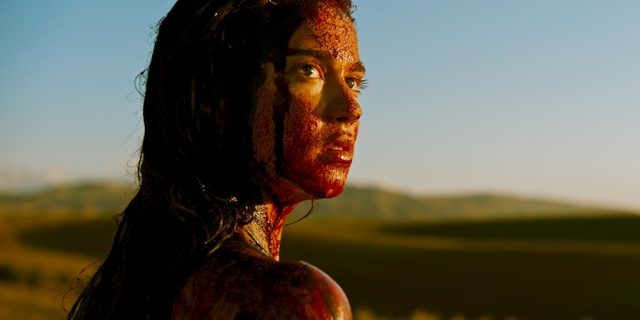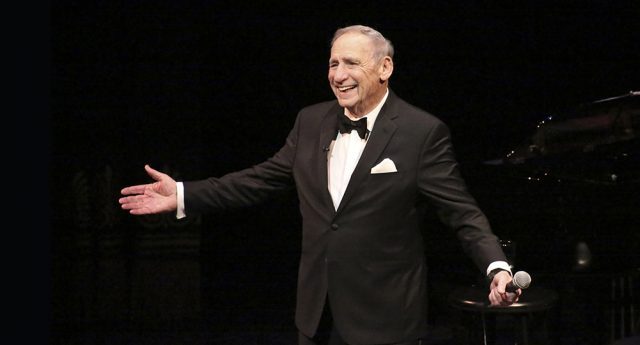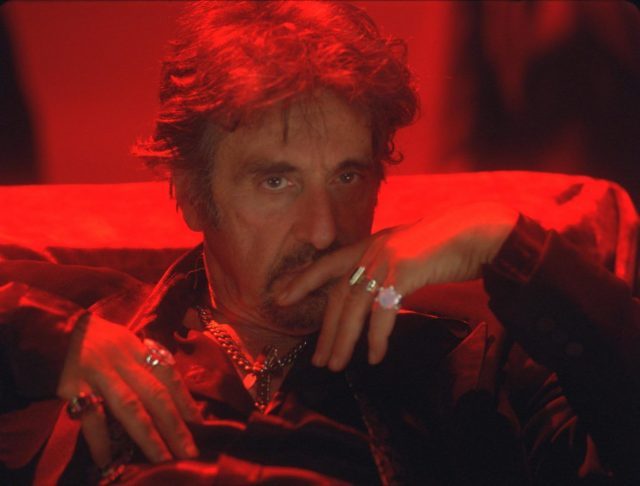
Al Pacino stars as an intense, leering King Herod in his adaptation of Oscar Wilde’s Salomé
Quad Cinema
34 West 13th St. between Fifth & Sixth Aves.
Opens Friday, March 30
212-255-2243
quadcinema.com/film/salome
quadcinema.com/film/wilde-salome
In 2006, Oscar, Tony, and Emmy winner Al Pacino starred as the Tetrarch, King Herod, in a staged reading of Oscar Wilde’s controversial 1891 play, Salomé, at the Wadsworth Theatre in Los Angeles, directed by Oscar and Obie winner Estelle Parsons and featuring Kevin Anderson as Jokanaan (John the Baptist), Roxanne Hart as Herodias, and the little-known Jessica Chastain as the title character. During the limited run, Pacino was also working on two films, one a fuller version of the play with the actors performing without script in hand, the other a documentary of the making of it all. Both films, the 2011 Wilde Salomé and the 2013 Salomé, are opening March 30 in their first-ever dual New York City engagement (though not as a double feature), concluding the Quad series “Pacino’s Way.” (As a bonus, Pacino will introduce the 7:30 screening of Wilde Salomé on March 30.) Salomé is a dark interpretation of the Wilde tale, photographed with a large number of close-ups by Benoît Delhomme. Not surprisingly, the production is ruled by Pacino’s portrayal of King Herod, with all the requisite scenery chewing and camp, but Chastain, in her film debut, is mesmerizing as Salomé, Herod’s stepdaughter who, after dancing for the Tetrarch — Pacino’s intense gazing at Chastain’s burgeoning sexuality is more than a bit creepy as Herod’s wife stands firm next to him — demands the head of Jokonaan, who has been imprisoned in a watery dungeon. The milky white Chastain goes head-to-head with the grizzled Pacino, getting the best of him in the end. Aside from Salomé’s dance, the film is sedentary and visually repetitive; Herod is primarily seated on his throne, and most of the other characters, including Ralph Guzzo and Jack Stelin as the Nazarenes, Steve Roman as the Cappadocian, Joe Roseto as the Captain of the Guard, and Phillip Rhys as the Young Syrian, just hang around him. Only Anderson moves about, trapped below. Still, the film is ingrained with a powerful force, driven by Salomé’s yearnings.
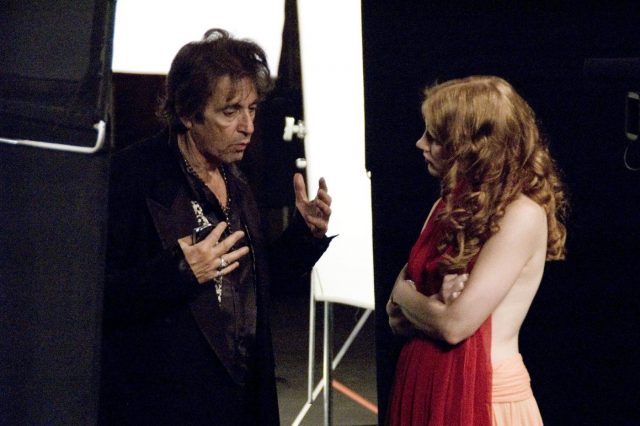
Al Pacino and Jessica Chastain discuss a critical scene in Wilde Salomé
Curiously, Wilde Salomé, which at one time was called Salomaybe?, was released two years before the film of the play itself. It is modeled similarly to Pacino’s stellar 1996 directorial debut, Looking for Richard, in which the star explores the play, the character, and the Bard, with the help of such fellow actors as Sir John Gielgud, Alec Baldwin, Kevin Spacey, Estelle Parsons, Winona Ryder, and Aidan Quinn. Wilde Salomé, which won the Queer Lion and the Glory to the Filmmaker Awards at the Venice Film Festival, is somewhat more audacious, if also not as satisfying as Richard. “This is about a journey I’m gonna take,” Pacino says. “I have an idea for a movie that intermixes the life of Wilde and the life of the play and the life of me trying to make the play. . . . So we went in search of the man who wrote something so personal as Salomé.” Not hiding from the camera, Pacino confesses, in a near fit of rage, “I got too much to do!” He is also seen agonizing over a difficult situation while wolfing down a white-bread sandwich. The documentary follows Pacino from the Wadsworth Theatre in Los Angeles to Masada in Israel to Europe, where he visits places where Wilde lived and worked. He talks about Wilde’s destructive relationship with Lord Alfred Douglas, better known as Bosie, as well as with his wife and children. Pacino freely admits his obsession with all things Wilde, wanting to know everything he possibly can about the poet and playwright’s spirituality, what drove him to write the way he did and make so many damaging life choices. Among those who discuss Wilde’s influence are Tom Stoppard, Gore Vidal, Tony Kushner, and Bono, who also provides the closing song with U2. Pacino is like a kid in a candy store whenever he discovers something new about Wilde; it’s too bad that there isn’t more of that in the film. Instead, there are far too many scenes taken directly from Salomé, which is particularly annoying if you are planning on seeing both films at the Quad. But it still is exciting watching the genius actor on a quest to understand the genius of Wilde.
